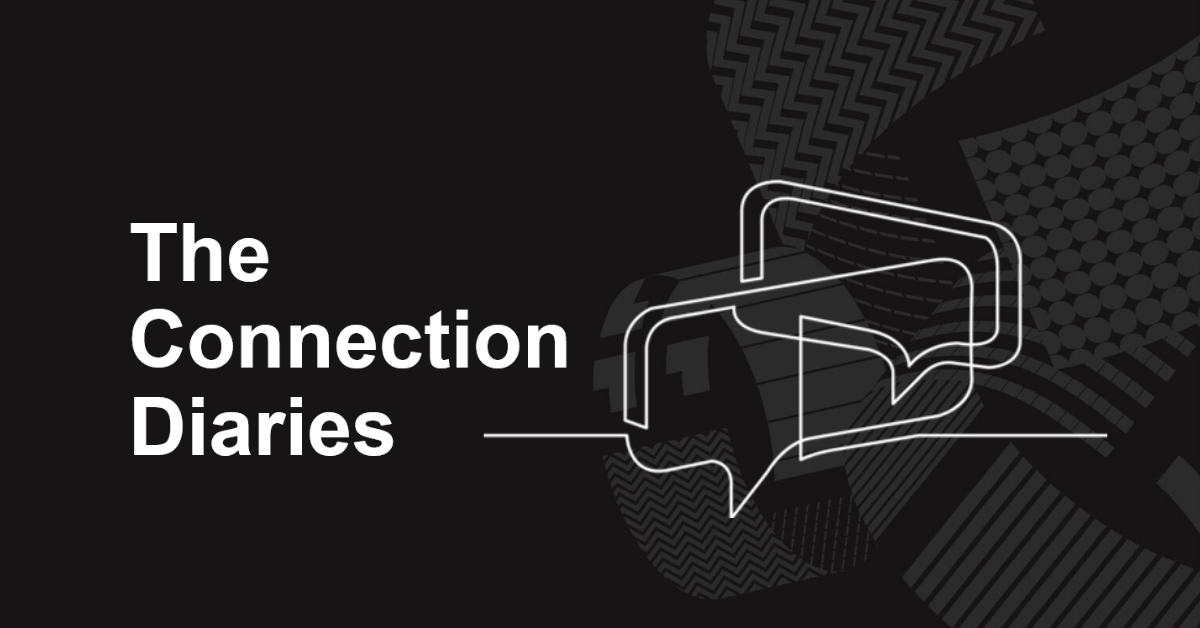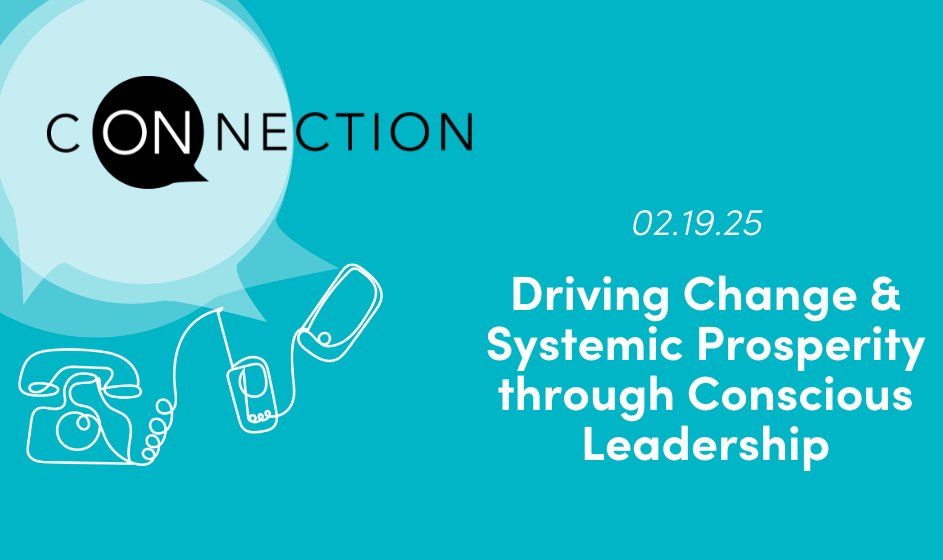
The Connection Diaries, Ep. 1: How do we stay connected when we’re physically apart?
All over the news are reports on the need for social distancing, and many of our clients have sent their employees to work from home. In times like these where we must be physically separated, what is important for leaders to know about remaining connected?
The quality of a leader’s communication to the people who are counting on her or him in times of challenge and uncertainty is crucial to creating a connected, confident, and resilient community. We have a history in high-stakes communication, and there are three important things we have learned through our experience:
Leaders need to be the source of accurate information, not the subject of worry and gossip
Leaders that share accurate information that is grounded in fact-based expertise allow people to feel that they are in the presence of the truth.
Don’t wait to share information until you think it’s complete. Share what you know when you know it. When you wait, you leave a vacuum for people to fill with fear-based stories and explanations.
Communicate more often than you think, and certainly every time there is something new to share.
Create opportunities for people to contribute
Many leaders think they need to be the source of the answer, but we think it is more important for leaders to know the questions, and to share the questions as soon as they are aware of them.
For example, a question present for many leaders now is: how are we going to manage being completely remote for a period of months? Instead of trying to solve this yourself, what if you give the question to all the people in the organization and say:
“We would like to hear from you. What do you think about this? What are your insights and ideas? How do we help ourselves stay effective, connected, and confident? I don’t know the answer, but I bet WE do.”
When people are contributing, they feel safer than they do when they are waiting for an answer from someone else.
Leaders should be prepared to be surprised and delighted by the ideas and wisdom that come from putting a group of people together and getting input from a wide array of individuals. The answers to leaders’ biggest questions can actually come from the communities they lead. We are smarter together than we are separately.
Don’t Argue in an Email!
When going through tumultuous change, there are constant needs to realign. Where there’s potential disagreement or where alignment is at risk, don’t try to have that conversation over email or text.
Add more senses so people can hear mood and nuance, and they will more readily available to truly understand one another, learn from one another, and come up with a path forward.
Be conscious of the level of potential disagreement, and how many senses can be added to assure that we truly do connect. When we’re together physically, we get away with misstep and mistake in different ways. We don’t have as much room for error when we have fewer of our senses engaged in being with one another.
We have a helpful resource for staying attuned to exactly this called The 5 Sense Solution.
Full Transcript
Robin: So Mickey, all over the news are reports of the needs for social distancing; so many of our clients have said all of their employees to work from home. In times like this when we have to be physically separated, what do you think is important for leaders to know about remaining connected?
Mickey: Well, I think this is a big question and something we should delve into frequently over the next couple of months. I’m thinking of this as the Connection Diaries, so that’s not only today’s short conversation. The first thing that comes to mind, though, given what you said, is the quality of a leader’s communication to the people who are counting on her or him in times of challenge and uncertainty. And there are some things that we’ve learned about that. The first one that we think is really important is that leaders need to be the source of accurate information, not the subject of worry and gossip. Being the source, not the subject, is a crucial issue, and it needs to be accurate information that people trust, that is grounded in fact-based expertise. It actually heals people to just feel that they’re in the presence of the truth. So we think that a frequent outreach where people hear from their leaders in a way that they don’t have to have worry and gossip, they know they’re connected, we think is really important.
Robin: Well, I think that point about frequency is so critical right now. You know, the news cycle on COVID-19 is so short, right, we’re getting updates all the time, and I find that there are some leaders who are wanting to wait until they have what they feel is enough information, but in those times when you’re waiting, it gives that vacuum for people to create a story, and—but we know in times like this is that, those stories are often generated out of fear. And so, to be the source of accurate information to communicate what you do know when you know it as opposed to waiting we think is so critical.
Mickey: Yeah, so we think, communicate more often than you might think and certainly every time where there’s something new to share. So that’s the first thing. The second thing is, we think it’s really important for leaders to create opportunities for people to contribute during times of uncertainty and challenge. A lot of leaders think they’re supposed to know the answer, and so they’re waiting until they have something brilliant to say. We think it’s more important for the leader to know the questions, and to share the questions as soon as we know them. So I may not know the answer is something like, how are we gonna manage being completely remote for a period of months? That’s a pretty big question. What if I give the question to all the people who work in the organization and say, “We’d like to hear from you. What do you think about this? What are your insights and ideas? How do we have ourselves stay effective, connected, and confident?” I don’t know the answer—I bet we do. So I think it’s really important that we create opportunities for people to contribute. When people are contributing, they feel safer than they do as they wait for some wisdom to come at them from someone else.
Robin: I think leaders should be prepared to be surprised and delighted by the ideas and wisdom that come from putting a group of people together and getting input from a wide array of individuals.
Mickey: Me too, and it’s delightful. I think it’s actually soothing for really senior executives when they realize that the answers to their biggest questions could actually come from other people, and you have this experience of hey, we actually might be smarter together than we are separately. So that’s the second one: give people opportunities to contribute. The third one, a kind of shallow way to say it is, don’t argue in an email. With that one we mean, when you’re going through this much tumultuous change there going to be constant needs to realign, realign, realign, and where there’s potential disagreement or where alignment is at risk, don’t try to do it through email and text. Because I don’t think anybody can give us very many examples of where they resolved an argument or a serious misalignment challenge through email or text. You want to add more senses so people can hear mood and nuance. They will more readily truly understand one another, learn from one another, and then come up with a path forward. So the third thing is just be very conscious of the level of potential disagreement and how many senses can you add. Like, you and I have gotten more senses than are available on an email or a text. How many senses can we add to assure that we actually truly do connect with each other, understand each other, learn from one another, and chart a path forward.
Robin: You know, it occurs to me that all three of these are actually really smart leadership communication principles in any circumstances, and it’s interesting how in times like this we often forget the things that we know to be true and to be smart, and retract. And I think the encouragement that you’re offering—that we’re offering—is actually to increase the level of communication, to increase the intentionality, and to not retract.
Mickey: I do think that they’re smart universally. I also think that when we’re together physically, we get away with misstep and mistake in different ways, that we don’t have as much room for error when we have fewer of our senses engaged in being with one another. So you’re right, they do become more important to be rigorous about because we just don’t have as much room for misstep and mistake.
So, for all of you that are listening to this, we hope that those three things are of some value. They have been to us. To be the source of accurate information, not the subject of worrying gossip. To give people chances to contribute, share the big questions when you don’t know the answers to them. And to actually really engage with people in communication venues that are appropriate to the level of disagreement, so don’t argue in an email. So that’s all we’ve got about this at the moment. Robin, you want to say anything in closing?
Robin: If this was helpful do you join us later this week; we’re gonna do a live conversation sort of along the same lines with our colleague Jim Maroney, so join us for that.
Mickey: Because we will be looking into, in the Connection Diaries, what are all the different ways we can connect powerfully, still keep producing results, and build community and confidence. So we look forward to being with you along the way. Thanks everybody.
Robin: See ya.
In a time when we are physically separated and uncertainty and anxiety are present, it is crucial that we stick to the leadership principles we know inspire greater connection and creativity.
We also hosted a live conversation on all the different ways we can connect powerfully, keep producing results, and build community and confidence. You can find the recording here: Virtual Gathering: Communication, Community, and Confidence
We will continue to explore this question and many others related to how we stay connected and keep creating value in challenging circumstances, so stay tuned for future episodes of The Connection Diaries and sign up for our newsletter, where we will share more resources and reflections over the coming weeks.
If you and your community have been having inspiring conversations and ideas about how to navigate the COVID-19 reality, we would love to hear about them! Please comment below or connect with us on LinkedIn. Let’s unleash our collective brilliance.



